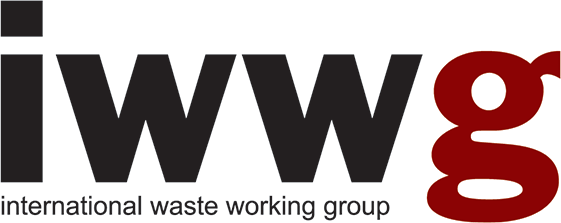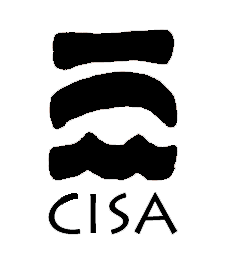FEASIBILITY OF LANDIFLL GAS UPGRADE FOR USE AS A FUEL SOURCE FOR REFUSE TRUCKS: A CASE STUDY IN SOUTH AFRICA
- Alberto Borello - Fountain Green Energy, FGE, South Africa
- Sameera Kissoon - University of KwaZulu-Natal, School of Engineering, CRECHE, Centre for Research in Environmental, Coastal and Hydrological Engineering, Civil Engineering, South Africa
- Cristina Trois - University of KwaZulu-Natal, School of Engineering, CRECHE, Centre for Research in Environmental, Coastal and Hydrological Engineering, Civil Engineering, South Africa
- Available online in Detritus - Volume 01 - March 2018
- Pages 69-74
Released under CC BY-NC-ND
Copyright: © Cisa Publisher
Abstract
The overall aim of this study is to determine the feasibility of the upgrade of landfill gas extracted from a typical large MSW landfill in South Africa, to be used as a fuel source for the fleet of municipal refuse trucks. The outcome of this study aimed to determine the economic feasibility of the upgrade of landfill gas for use as fuel as well as the associated environmental benefits. Landfills contribute to 11% of the total (GHG) greenhouse gas emissions globally. The reduction of GHG emissions can be achieved through the extraction of landfill gas. At landfills in the major municipalities in South Africa, landfill gas is primarily extracted and flared or used for electricity generation. As a non-renewable highly priced commodity, the use of fossil fuels to haul refuse trucks proves to be an expensive endeavour for municipalities. Therefore, there is a need for alternative fuel sources. The feasibility of the use of landfill gas as a fuel source was achieved by the analysis of the case study municipal facility and its process. The Waste Resource Optimization and Scenario Evaluation (WROSE) model, developed at the University of KwaZulu-Natal, was employed to determine the environmental, technical and economic benefits of implementing alternative waste treatment technologies. Municipal weighbridge and emissions data was collected from a number of landfills across South Africa and the WROSE model was used to analyse the environmental and financial benefits of three scenarios: 1. Landfilling of unsorted waste with LFG extraction and flaring, 2. Landfilling with LFG extraction for energy generation and 3. Landfilling of unsorted waste with LFG extraction and upgrading to fuel for municipal trucks. The outcome of the research shows that the landfill used as a case study presented great potential for the upgrade of landfill gas to a fuel source.Keywords
Editorial History
- Received: 16 Jan 2018
- Revised: 13 Mar 2018
- Accepted: 19 Mar 2018
- Available online: 31 Mar 2018
References
Bogner, J., Pipatti, R., Hashimoto, S., Diaz, C., Mareckova, K., Diaz, L., Kjeldsen, P., Monni, S., Faaij, A., Gao, Q. and Zhang, T., 2008. Mitigation of global greenhouse gas emissions from waste: conclusions and strategies from the Intergovernmental Panel on Climate Change (IPCC) Fourth Assessment Report. Working Group III (Mitigation). Waste Management & Research, 26(1), pp.11-32.
Department of Environmental Affairs (DEA), 2012,. National Waste Information Baseline Report. Republic of South Africa
Friedrich, E and Trois, C., 2016. Current and future greenhouse gas (GHG) emissions from the management of municipal solid waste in the eThekwini Municipality–South Africa. Journal of Cleaner Production. 112, 4071-4083
GMI., 2010. Global Methane Emissions and Mitigation Opportunities Global Methane Emissions. Global Methane Initiative, 2020, 1–4. Available at: www.globalmethane.org [Accessed 20 March 2017]
Greben, H.A. and Oelofse, S.H., 2009. Unlocking the resource potential of organic waste: A South African perspective. Waste Management & Research, 27(7), pp.676-684.
Jagath, R., 2010. An Assessment of Carbon Emissions Reduction Potential Through Zero Waste Activities in South African Municipalities (Doctoral dissertation, University of KwaZulu-Natal, Durban).
Kukoyi, T.O., Muzenda, E. & Mashamba, A., 2015. Biomethane and Bioethanol as Alternative Transport Fuels. , 2012.
Litzke, W.L. and Wegrzyn, J., 2001. Natural gas as a future fuel for heavy-duty vehicles (No. 2001-01-2067). SAE Technical Paper.
Matete, NO and Trois, C., 2008 Towards Zero Waste In Emerging Countries – A South African Experience. Waste Management, Vol. 28, Issue 8, 1480-1492.
Motiang, M. & Nembahe, R., 2016. 2016 Energy Price Report, Department of Energy, Republic of South Africa
Nahman, A., De Lange, W., Oelofse, S. and Godfrey, L., 2012. The costs of household food waste in South Africa. Waste Management, 32(11), pp.2147-2153.
Naidoo, K., 2011. An analysis of municipal solid waste management in South Africa using the Msunduzi Municipality as a case study. University of KwaZulu-Natal
Polokwane Declaration on Waste Management (DEAT)., 2001. Department of Environmental Affairs and Tourism, Government of South Africa. Polokwane Declaration. Drafted by Government, Civil Society and the Business Community. National Waste Summit, Polokwane, 26–28 September 2001
Suleman, M., Gaylard, S.T. and Snyman, C., 2015. South African Cities Green Transport Programme
South Africa, 2008. National Environmental Management: Waste Act, No 59 of 2008., Government Gazette No. 32000, Notice No. 278.
Trois, C. and Jagath, R., 2011. Renewable energy in South Africa: Potentials, barriers and options for support. In Integrated Waste Management. pp. 441–460. Available at: http://www.sciencedirect.com/science/article/pii/S0301421510002673
United Nations Framework Convention on Climate Change. 2017. Global Warming Potential. Available at: http://unfccc.int/ghg_data/items/3825.php [Accessed 25 May 2017]
Wegrzyn, J. and Gurevich, M., 2000. Liquefied natural gas for trucks and buses (No. 2000-01-2210). SAE Technical Paper.
WRI (WorldResourcesInstitute) 2016. ClimateAnalysisIndicatorsTool (CAIT) Version 6.0; online: /http://cait.wri.org/S (accessed 16 November 2016).
Zietsman, J., Bari, M.E., Rand, A.J., Gokhale, B., Lord, D. and Kumar, S., 2008. Feasibility of landfill gas as a liquefied natural gas fuel source for refuse trucks. Journal of the Air & Waste Management Association, 58(5), pp.613-619.




